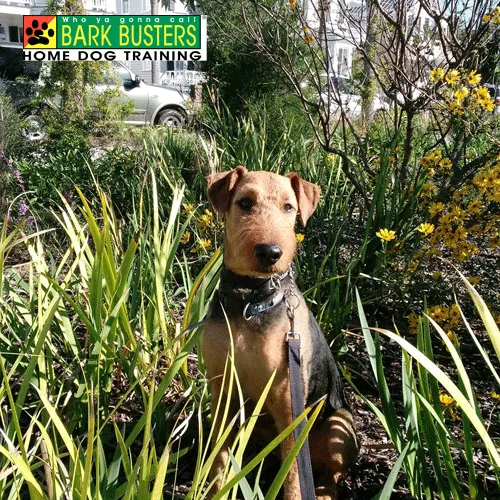Pooch Poisoning Prevention

There's no place like home, however, it's also where a lot of poisons lie in wait for your dog. Dogs are naturally curious, and they learn a lot about their world through their sense of smell and taste. Some things in your home could be deadly if your dog eats them. Here's how to keep your dog safe from some common poisons.
Pest poisons
You may leave out rat poison to drive away vermin, but it could be fatally tempting to your dog, too. Instead of using poison for pests, try alternative methods such as traps and other deterrents. If you do use poison, be sure to keep it well away from your pet.
Fertilisers and lawn chemicals
Some fertilisers, like blood and bone, can smell tasty to dogs, but they can be one snack that's best left uneaten. Lethal chemicals in many fertilisers and pesticides can cause anything from upset stomachs to death in pets. Be sure that if you use these on your lawn, your dog doesn't follow behind and lick the chemicals.
Plants
Many plants that grow in your home and surroundings are toxic to pets. Be aware of these and keep your pets away from them or remove them entirely. Here is a list of toxic common garden plants.
Human foods
Some human foods can actually be toxic to dogs. You may already know that chocolate is dangerous for dogs, but you should also keep them away from raisins, grapes, caffeine products, alcohol and yeast dough.
Human medications
If you ever drop a pill, be sure you find it and pick it up, or you could be risking your dog's safety. Many human medicines are dangerous for your pet's health. Pain relievers can cause stomach ulcers, and even vitamins can make your pooch very sick. Store medications out of your dog's reach to keep them safe from harm.
Other household items poisonous to pets
These include household cleaners and heavy metals such as lead. Remember that a natural cleaner, may still not be safe for your dog. Silica gel packets if ingested could cause iron poisoning. Make sure to dispose of the packets carefully where your dog can't get to them.
If you think your dog has ingested a dangerous substance, contact your veterinarian or local animal hospital immediately.
Read further about poisons that lurk at your place Poisons.pdf
Recent Articles
- Back to School Guide: Helping Your Dog Adjust to the New Routine
- How To Keep Your Dog Cool in the Summer Heat
- Keep Your Dog Safe This Summer: Bark Busters’ Essential Tips
- Christmas Dog Safety Tips: Keep Your Dog Safe & Happy This Festive Season
- Dog Aggression Training & Tips
- Leash Training - How to Stop your Dog from Pulling on Walks
- Halloween Safety Tips for Dog Owners
- Why Is My Dog Barking So Much? Understanding Excessive Barking and How To Help
- Understanding and Training Dogs with Separation Anxiety
- Dogs need education too!
